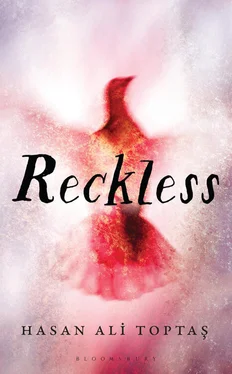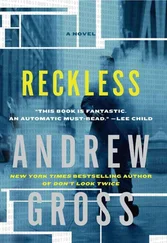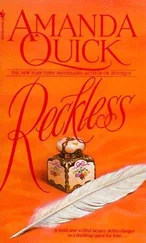The commander had woken up by now and was standing in the door of the room next to the guardhouse, looking very drowsy. Next to the flagpole, a soldier was shaving the head of another soldier who was crouching on the ground. He didn’t seem to be doing it quite right, because the soldier who was crouching on the ground kept turning around, white-eyed, to offer suggestions. Sometimes he fluttered his fingers back and forth in the air, to show him how it should be done. The other soldier would lean over and watch carefully from above, and nod. Just then, an open-topped jeep rolled in past the soldiers who had queued up in front of the toilet with their water cans, waiting for their turn to wash. In a cloud of dust, it wheeled to the right to come to a halt five paces in front of the commander. Out jumped a flushed, narrow-shouldered, humpbacked weed of a sergeant. As he loped over to the commander, it looked as if the wind was blowing him. His head bobbing, he began to tell the commander something with feverish intensity, pointing into the distance as he did so. And the commander stood there listening, still as a statue. Then he put his hands on his hips and for a time gazed down at the ground in silence. The sergeant fell silent, too. He stood with his hands at his sides, and his head bent. Then suddenly the commander raised his head, turned towards the office, and waved to Ziya to come straight over.
Ziya left Resul in the office with the sobbing Ahmet and rushed over.
‘The clerk in the next company was shot in a skirmish last night,’ said the commander. ‘You are to go over there and show someone who can type how to prepare the report. They’ll bring you back tomorrow. So now jump into that jeep!’
‘Yes, sir!’ said Ziya.
And then he climbed into the back of the jeep and sat down on a black leather seat that was caked with dust. The sergeant piled in after him, looking very much like one of those stick figures in the sketches he did of incidents. With that they were off, and, tracked by clouds of dust, they sped down the road for six or seven hundred metres, and into the territory of the Yıldıran Outpost, and on they went, racing towards the horizon in silence. For about an hour, they watched yellow waves ripple across the empty sun-baked hills, as the minefield on their left grew thicker and then thinner, while on their right they passed one observation tower after another, and trenches that looked like open graves. At regular intervals, they also passed the grey prefabricated guardhouses perched on their hilltops like forgotten boxes. And then there were the waves of desolation, and the silences, and the things that seeped into those silences — the rustling of grass and the deep-blue skies — until at last they had arrived at company headquarters.
When they got out of the jeep, the sergeant said, ‘Follow me,’ and led him straight into Capflyer’s office. This was at the front of a stone building that, with its high walls and crenulations, resembled a little desert fort. Capflyer was standing at the window, hands on hips, lost in thought. Slowly, very slowly, he turned around, and Ziya could see that his eyes were red, and puffy from lack of sleep. Slowly, very slowly, he returned to his desk and then he looked Ziya up and down, up and down, as if he could hardly believe he was there. And then off he went, huffing and puffing and angrily rubbing his face, as he explained how his clerk had been killed by smugglers and gave precise instructions for the report. He didn’t go into much detail, to tell the truth: all he said was that the previous night he had gone out in his jeep on night patrol as usual with his clerk, Rasim Benli, that at around three in the morning they had spotted a group of smugglers trying to cross over from Syria into Turkey, and that at the end of a skirmish lasting fifteen or twenty minutes, they had pushed them back. And also that these smugglers had left nothing behind, and that the battlefield was empty, on account of the smugglers having passed through the minefield, and he said all this through narrowed eyes, as if he was reading a book from a distance. And then, with a ballpoint pen he pulled out of his shirt pocket, he jotted down a few more details — where the skirmish had taken place, the names of the guards who had taken part, and the number of bullets used — and handed this piece of paper over to Ziya, and then, in a weary voice, he said, ‘Take this with you, my boy. Go over to that office and prepare the report at once.’
The stick-figure sergeant gave him a curt nod and led him out of Capflyer’s office, and took him quickly down the corridor to an office at the other end. There was a row of seven windows in this office — one big one, and six little ones. The walls were milky white, radiating silence, and in the middle of that silence, a tall soldier stood waiting.
‘So this is going to be our new clerk,’ said the second lieutenant. ‘You’re to tell him what needs to be done and how. So sit down and get started.’
And though the last thing he wanted to do right then was to sit in the chair of a clerk who’d just been killed, that is what he did. Putting Capflyer’s notes down on the desk, he pulled the typewriter closer to his chair and at once began to type. His student — the man the lieutenant had introduced as Cezmi — was a most nervous and absent-minded creature, and his drooping eyelids made him look as if he was already wafting through the world of dreams; knowing that his training was to last only a day, after which he would be expected to do any number of things alone, he bombarded Ziya with anxious questions at every opportunity. And every once in a while Ziya would stop typing to give him a proper answer, and every time he did so, he’d say, ‘But listen, every time you’re stuck or can’t figure something out, you can just pick up the phone and ask me.’ This would calm Cezmi down somewhat. He’d slip into the deathly silence of the corridor and return with two glasses of tea. But as soon as they’d drunk these teas and put the glasses to one side, he’d grow anxious again; standing up, he’d go over to the cupboard where they kept the dossiers, and stare at their spines. He’d pass his hands over the yellow envelopes piled up on the shelves, and rustle through the notebooks next to them, or he’d stand right next to Ziya, asking him whatever question was in his head, even if it happened to be one Ziya had already answered.
The next afternoon, after Ziya had finished the document, put it into its dossier, and taken it into Capflyer’s office to be signed, Cezmi asked him a string of questions about the monthly statements he would need to prepare on the company’s provisions, equipment and personnel. Leaning against the table, Ziya answered his questions one by one, in plain language. Then he handed the dossier over to Cezmi and in a tired voice he said, ‘As there’s nothing left for me to do, I think it’s time for me to tell the lieutenant, so that they can get me back before dark.’
Glancing at the dossier in his lap, Cezmi asked, ‘But does this report say, for instance, that the clerk was shot in the temple?’
‘I don’t understand,’ said Ziya. ‘Was the clerk shot in the temple?’
‘Yes,’ said Cezmi. ‘Somehow, in the pitch dark, those smugglers managed to hit him square in the temple.’
Ziya went cold, and for a time he didn’t speak. And neither could he see or hear what was going on around. He just sat there, ears ringing, falling through the darkness of his mind.
That same evening, they took him back in the same jeep, reaching Telhamut just as the sun sank into Syria. He was still very agitated: when he went into the room next to the guardhouse to give his oral report to the commander, his face was ashen and he could barely stand. And that was why, after looking him over, he said, with some reluctance, that Ziya was excused from night patrol this once. ‘Go and get some rest,’ he said. And then he adjusted the collar of his parka, which was hanging on the backs of his shoulders. ‘But don’t forget,’ he said. ‘From tomorrow you’re going back out on night patrol as usual, and also watering those saplings.’
Читать дальше












